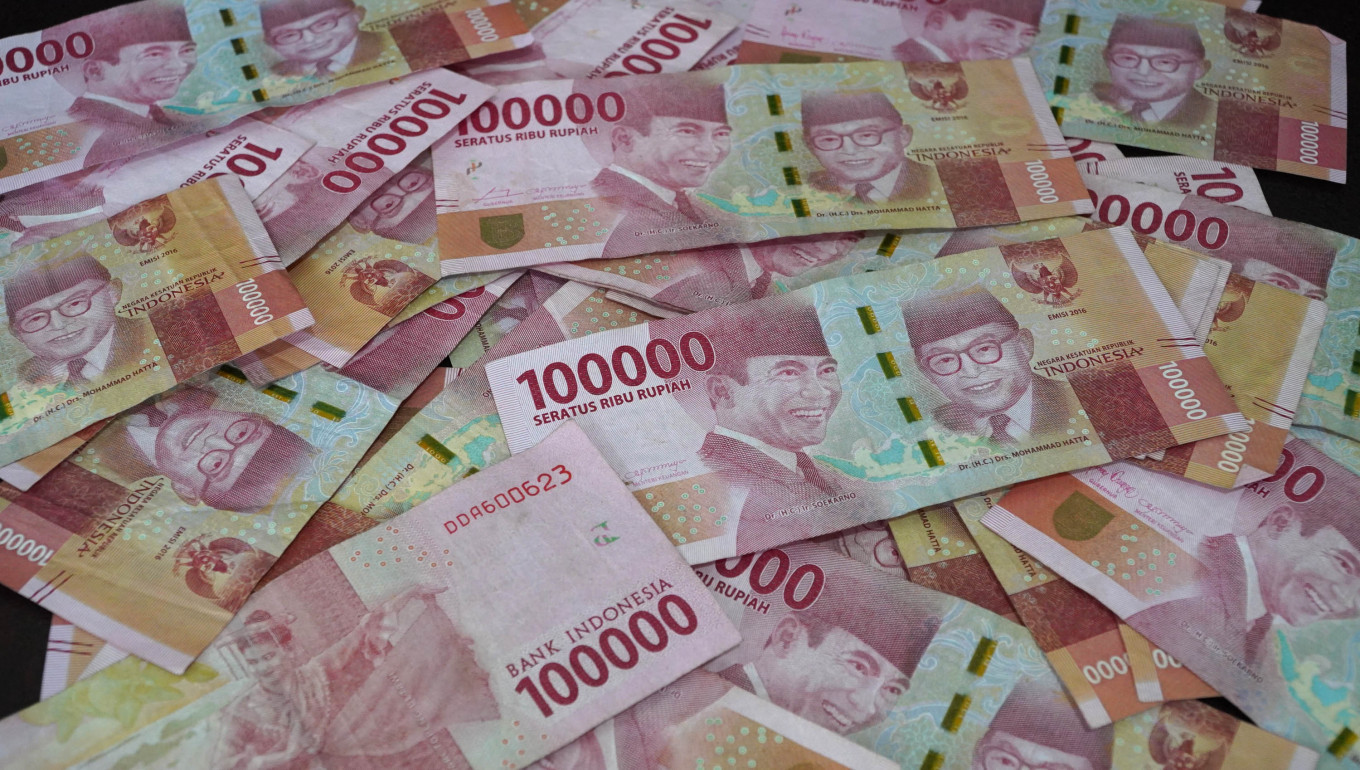Popular Reads
Top Results
Can't find what you're looking for?
View all search resultsPopular Reads
Top Results
Can't find what you're looking for?
View all search resultsBank Indonesia buys $5.6b in govt bonds in burden-sharing scheme
The deal was finalized on Thursday and was sold in maturities of five, six, seven and eight years, each worth Rp 20.52 trillion, according to a statement by the Finance Ministry.
Change text size
Gift Premium Articles
to Anyone
B
ank Indonesia (BI) has bought Rp 82.1 trillion (US$5.64 billion) worth of government bonds in a private offering, marking the first transaction under the government’s burden-sharing agreement to fund the fiscal deficit resulting from the nation’s COVID-19 response.
The deal was finalized on Thursday and was sold in maturities of five, six, seven and eight years, each worth Rp 20.52 trillion, according to a statement by the Finance Ministry.
“This transaction is part of the burden-sharing scheme between the government and Bank Indonesia to finance the impact of the COVID-19 pandemic and national economic recovery,” said the Finance Ministry’s financing and risk management director general Luky Alfirman in the statement.
The central bank and the government have agreed on a Rp 574.59 trillion debt monetization scheme, with the central bank pledging to buy Rp 397.5 trillion in bonds at a coupon rate corresponding to BI’s benchmark interest rate of 4 percent to fund health care and the social safety net. The central bank will then return the yield to the government in full on the day it is paid.
“The private placement transaction was conducted by maintaining credible fiscal and monetary management, while also maintaining fiscal space and sustainability,” Luky added.
The government is facing the daunting task of raising Rp 990 trillion in the second half this year to cover a fiscal deficit of 6.34 percent of gross domestic product (GDP).
President Joko “Jokowi” Widodo’s administration has allocated Rp 695.2 trillion of the state budget to stimulate the economy and strengthen the country’s pandemic response, but the slow distribution of the funds because of red tape is expected to delay the impact on the economy.
The government recently promised to accelerate stimulus spending with Finance Minister Sri Mulyani pledging to spend Rp 1.4 quadrillion in the second half of the year to bolster economic growth.
Indonesia’s economy contracted 5.32 percent in the second quarter, the first contraction since the aftermath of the 1998 Asian financial crisis, as household consumption, investment and government spending tumbled during large-scale social restrictions (PSBB) imposed to curb the spread of the virus.
The government now expects the economy to shrink by 0.4 percent at worst or grow by 1 percent at best this year.
Read also: No global bonds in sight as Indonesia focuses on local debt market










